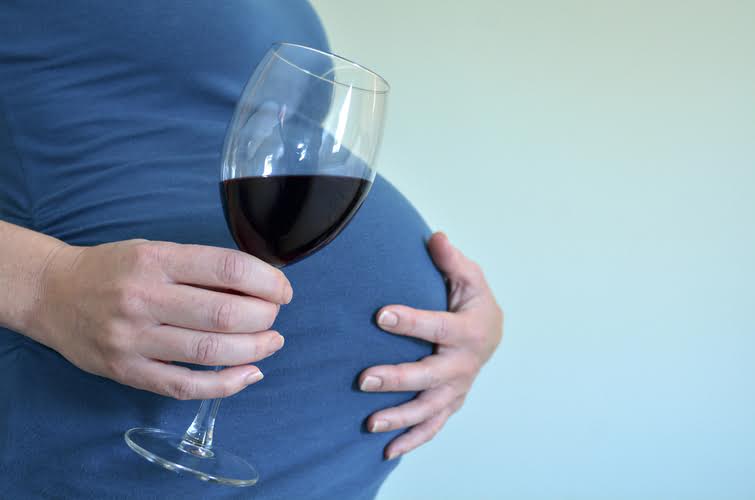This step is not about apologizing—it’s about making things right wherever possible. By taking responsibility for our actions, we begin to clear away the wreckage of our past and experience the freedom the promises of recovery speak about. Step 8 is where we begin preparing for direct action in our relationships. It’s not just about writing names—this step calls us to honestly acknowledge those we’ve harmed and become spiritually prepared to make amends.
That’s true even if you’re just now considering that you or a loved one may have an addiction issue. Some people with addiction issues need detox treatment to deal with the health risks that can come with stopping their use of an addictive substance. In a world full of tough challenges that can put the human spirit to the test, addiction stands out as one of the most formidable foes. Its sneaky and relentless hold can completely change lives in unimaginable ways, affecting not only the person trapped but also those who care about them.
Your Couch, Your Cure: How In-Home Addiction Treatment Works
All Addiction Resource content is medically reviewed or fact checked to ensure as much factual accuracy Twelve-step program as possible. Access State-Specific Provider Directories for detailed information on locating licensed service providers and recovery residences in your area. We do not receive any fee or commission dependent upon which treatment or provider a caller chooses.
- Recovery is rarely a straight path—along the way, individuals often encounter obstacles that can feel overwhelming.
- One advantage of mutual support groups is that there is likely someone to call on in such an emergency who has experienced a relapse and knows exactly how to help.
- Aftercare offers support and programs for long-lasting recovery and reducing relapse risks.
- In many cases, individuals in recovery benefit from supportive social networks that provide encouragement and accountability.
Dual Diagnosis: Substance Abuse and Mental Health
Furthermore, therapeutic sessions provide tools to cope with addiction and self-destructive behaviors. It’s about having the right tools, structure, and guidance at each stage of the journey. Professional support helps individuals understand where they are in the process and offers strategies tailored to their needs, especially during moments of doubt or transition. These stages — often referred to as the stages of change — help explain why recovery isn’t simply a matter of willpower. Instead, it’s a gradual process involving awareness, intention, action, and persistence. People may move back and forth between stages, which is a natural part of change, not a failure.
What Happens in This Stage?
Mental health professionals can and should be part of your support system. Your religious organization, if you have one, can also offer support and spiritual counseling. Every month, 150,000 people search for addiction or mental health treatment on Recovery.com. Help with transportation to appointments, provide emotional encouragement, and most importantly, remind your loved one that you’re proud of them for taking this step. At this point, the individual has decided to make a change and is seeking help. This could mean entering a treatment program, attending support groups, or even reaching out to a counselor for the first time.
Comprehensive Rehabilitative Services
She has a wide range of clinical experiences, ranging from years of traditional clinic practice to hospitalist care to performing peer quality review to ensure optimal patient care. If you or someone you love is struggling with addiction, getting help is just a phone call away, or consider trying therapy online with BetterHelp. By Buddy TBuddy T is a writer and founding member of the Online Al-Anon Outreach Committee with decades of experience writing about alcoholism. Because he is a member of a support group that stresses the importance of anonymity at the public level, he does not use his photograph or his real name on this website. The organization lists several online and in-person meetings available in the U.S., Canada, and Europe.
That temporary relief comes at a high price, though, as substances ultimately make these conditions worse. The real game-changer is creating a detailed relapse prevention plan that gives you specific actions to take when triggers arise. When you’re in recovery, finding new ways to deal with life’s challenges becomes essential.
Whether applied in the context of group meetings, one-on-one counseling, or personal introspection, the 12 steps offer a supportive and effective approach to overcoming addiction. Although not always discussed, relapse can occur and is often considered a part of the recovery journey. If relapse happens, it is essential to view it as a learning opportunity rather than a failure.
- However, a relapse is by no means a long-term failure or a sign that an addiction recovery program was ineffective.
- Many definitions of recovery include not only the return to personal health but participation in the roles and responsibilities of society.
- Having the support of friends and family members is an invaluable asset in recovery.
- These programs can be an effective treatment option for those with less severe addictions or as step-down treatment after completing an inpatient program.
- Addiction doesn’t just affect individuals; addiction is a family affliction.
Advanced recovery (5+ years and beyond) involves continued personal growth, often helping others, and maintaining healthy vigilance. Many people in this phase describe their addiction as a painful but transformative experience that ultimately led to a more authentic, connected life. When patients ask me this question, I explain that recovery isn’t a destination but a journey with several phases.
Why Understanding the Stages of Recovery Matters
In this phase, a person starts to recognize that their substance use might be causing harm. While they may not be ready to take action, they become more willing to reflect on the possibility of change. This shift opens a window for meaningful conversations and encouragement. At this stage, a person often doesn’t see their substance use as a problem. The idea of change may feel irrelevant or threatening, and concerns from others can be met with defensiveness. Loved ones may struggle to connect without pushing the person further away.
Our advisory board brings together leaders in behavioral health, technology, and business. Their diverse expertise ensures our resources and product are innovative, evidence-based, and effective. They guide our mission as accomplished individuals dedicated to improving the landscape of addiction recovery and mental wellness. Recovery.com combines independent research with expert guidance on addiction and mental health treatment. Our mission is to help everyone find the best path to recovery through the most comprehensive, helpful network of treatment providers worldwide.
#5: Maintenance Stage
Many individuals cycle through the stages of change before finding lasting recovery. With the right support and a personalized approach, healing is always within reach. Relapse can feel like a setback, but it doesn’t mean treatment has failed. Recovery is a lifelong journey, and many individuals experience one or more relapses before achieving lasting sobriety.
They may also begin to realize that they can’t break out of the cycle of addiction on their own. In a residential recovery setting, individuals get constant support from doctors, nurses and counselors during this time. Medically assisted detox allows you to go through this phase of recovery in a much more comfortable position, often without feeling many of the withdrawal symptoms. They may also begin to realize that they can’t break out of the cycle of addiction on their own.
Understanding Drug Abuse vs. Misuse: Clearing the Confusion
Addiction recovery is a multifaceted journey that requires understanding, effort, and support. Navigating through the stages of recovery can be challenging, but being informed about the process can empower individuals and their loved ones to effectively tackle these challenges. This article will explore the specific stages of addiction recovery, providing insights into each https://ecosober.com/ phase and highlighting strategies for sustaining long-term sobriety. Understanding the stages of addiction recovery is crucial for both individuals struggling with substance abuse and their loved ones. These stages provide a roadmap for change, offering insight into the emotional, psychological, and behavioral shifts required to break free from addiction.
Recovery is rarely a straight path—along the way, individuals often encounter obstacles that can feel overwhelming. These challenges are a normal part of the healing process, not signs of failure. Understanding the common difficulties people face can help prepare both those in recovery and their loved ones to navigate these moments with greater patience and compassion.








